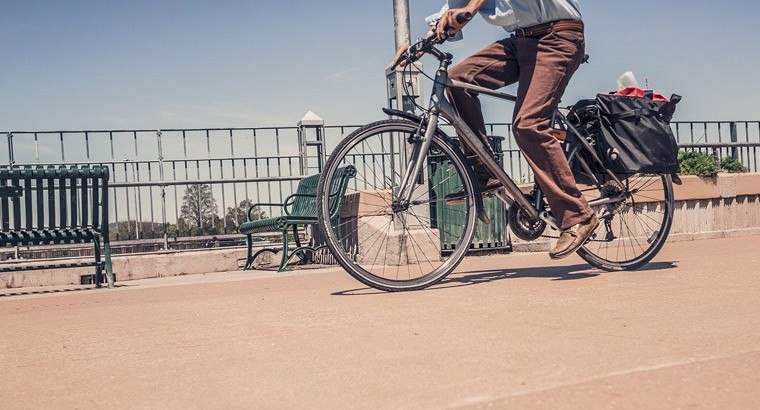
UK workers spend £91 billion a year on their jobs – but there are plenty of ways to get through the daily slog without breaking the bank.
With the rise in rail fares and tight finances after Christmas, many people are looking to make savings. One way to slash costs is to stop splashing out on a day at the office. Cut your work-related expenses and you can effectively give yourself a pay rise.
New figures show that full-time workers in Britain spend £91 billion a year just to do their job, according to Santander credit card research. Work-related expenses including childcare and commuting cost on average £3,405 a year – that’s a 27% increase since 2013 when the average cost for a full-time employee was £2,681. Some of those costs are unavoidable, but a good chunk of our spending also goes on treats, says a study by American Express. It claims the average commuter spends more than £1,000 on extras, such as drinks and snacks. Fortunately, there are plenty of ways to get through the daily slog without being out of pocket.
Cycling
Cycling to work means you ditch the costs of fuel, parking and transport. It’s even cheaper if your company runs the Cycle to Work salary sacrifice scheme. Another option is walking, which is what Andy Lloyd-Williams, who works in Oxford Circus, has been doing for more than a year. “My journey from Westbourne Park costs £5.20 a day on the tube, which is more than £100 a month.†says Lloyd-Williams, who works in communications. “It’s a seven mile a day walk and I’ve started to improve my Italian by using a language App as I walk.â€
Driving
Advertisement Car sharing initiatives are a great way to save money on the commute to work. Schemes such as Liftshare.com and Blablacar.co.uk claim users save up to £2,000 a year. If you only need a car for occasional meetings, why not give yours up and hire one from clubs such as Co-wheels. Another motorist nightmare is parking fees. To skip them, hop on your bike for the last bit.
Trains and buses
Annual season tickets can save hundreds, compared to buying monthly or weekly travel passes. Usually the cheapest way is if your employer runs a tax-efficient scheme, where they buy the season ticket and employees have the cost deducted in monthly instalments from their net salary. Another way to spread the cost is to get a 0% credit card, buy your season ticket and repay it monthly without interest. Or you could join a scheme such as Commuterclub.co.uk. These work a bit like loans: the club pays for the season ticket and you repay it in monthly instalments. It charges a percentage of the cost but it’s still cheaper than monthly tickets.
Food and drink is a big issue too. A study by Vouchercloud.com showed those who make their own sandwiches can save up to £1,300 a year. That’s enough for a holiday. Put it like that and a packed lunch is suddenly a lot more attractive. Other ways to save include splitting bags of posh coffee with colleagues and making a brew in the office, using voucher sites, discounts and freebies (such as those offered on phone contracts and loyalty card schemes from stores) to pay for lunches and snacks.
Childcare
The cost of sending a child under two to nursery part-time (25 hours) is now £6,003 per year, which is a 5.1% rise since 2014, according to the Family and Childcare Trust. One way to save is to use the childcare voucher scheme. Employees paying the basic rate of tax can save approximately £933.12 per annum (40% rate tax paying employees make a saving of around £623.28).
Treats
Treats can make a real dent in your earnings. Drinks are the most popular purchase, according to an American Express study, which found that commuters spent £16.93 a month on them. It goes without saying that taking a flask is cheaper. But if you do want to buy coffees, then sign up a loyalty scheme at your favourite place. And if you read while you sip (commuters spend an average of £12.83 a month on magazines and newspapers), ways to save include buying digital subscriptions for your tablet or phone. You could also off-set the costs by using credit cards, where you can earn cash back or rack up rewards.
Work from home
If all else fails, you could try working from home. Tracey Gibson, a homeworker, who works for Sensée, for instance, reckons she saves more than £6,000 a year. “I no longer pay for fuel and as for lunch, I’m a 30-second walk away from the fridge.â€